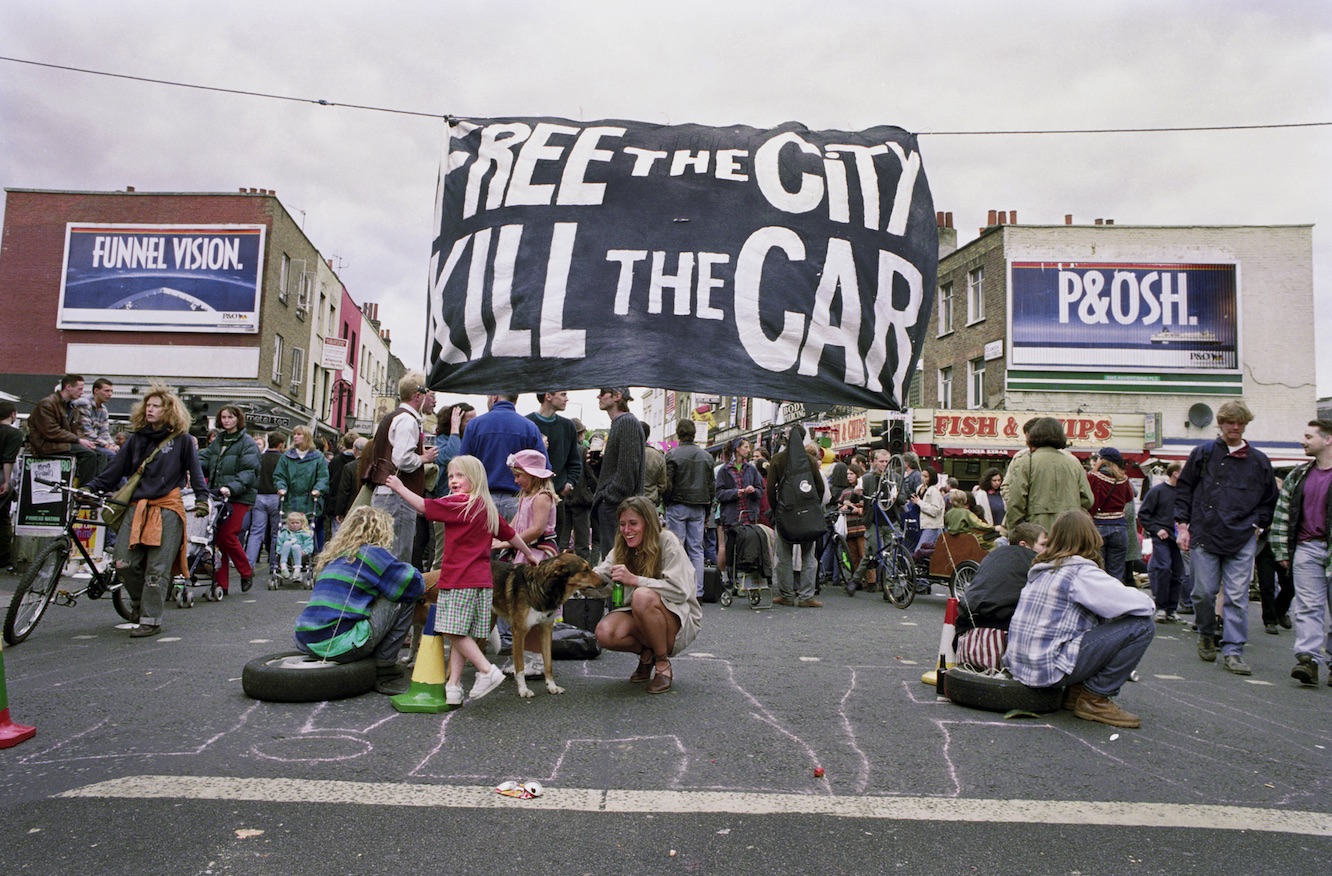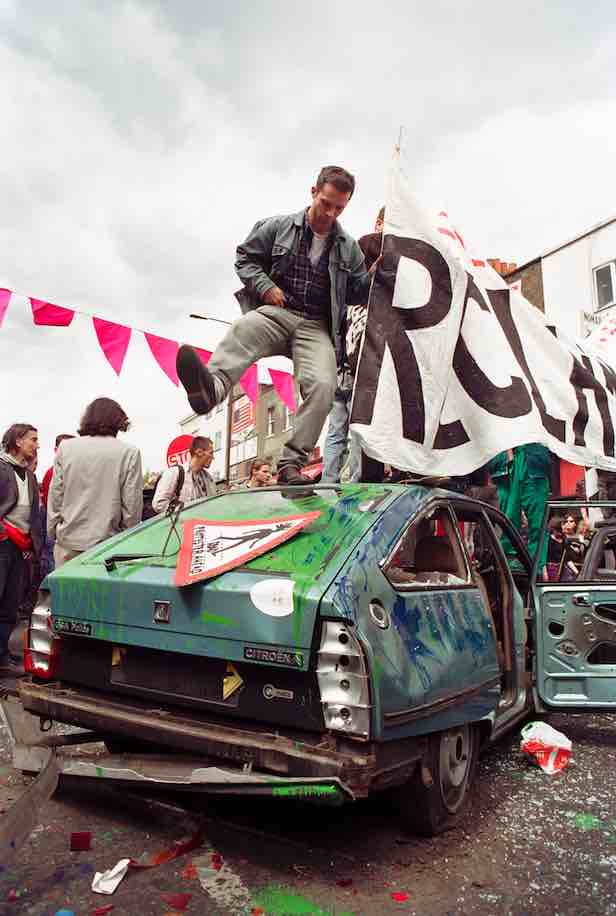Roadblocks? They were telling us to ‘kill the car’ in the 1990s!
Adrian Fisk's exhibiton can be seen now
Monday, 12th September 2022 — By Dan Carrier

Reclaim The Streets take over Camden High Street [Adrian Fisk]
CAMDEN High Street was brought to a halt after protesters warning about the rocketing amount of greenhouse gases in London’s polluted air dragged obstacles into the road and held an impromptu party and demonstration.
Not this week – but a protest in Camden Town 25 years ago, as a new exhibition points out.
The photographs of Adrian Fisk, which include images from the Reclaim The Streets protests that brought Camden to a standstill in the mid-1990s, are the subject of a new exhibition at the Climate Change Centre in Upper Street, Islington.
He remembers the day protesters brought the fight against the climate crisis to the bustling weekend streets of Camden Town.
He said: “From down the street came the sound of music getting louder. Suddenly a fantastic machine came into view, built from rickshaws and bicycle parts like some make-believe fantasy that left a trail of love and joy in its wake.
“This pedal-powered contraption was the Rinky Dink Sound System and in no time those stood on Camden High street began to move and jive to a beat that appeared as if by magic from its yellow conical speakers.”
Mr Fisk has drawn on an archive from 1995 to 1999, when he covered the Newbury bypass protest in Berkshire. Environmental activists camped out to halt the building of a new road – and kickstarted a generation’s environmental activism.
He said of his historic pictures, seen in public for the first time: “They are all shot on film and were in cupboard as negatives and contact sheets.”
Mr Fisk had displayed a series of his work focusing on the 1990s Acid House movement at the Saatchi Gallery two years ago, and this prompted him to return once more to images he captured during the tail end of a two decade-long Conservative government.
It was after a life changing trip to Bangladesh aged 20, where he was witness to the tragedy of a cyclone that killed more than 100,000 people, that he began studying photography at university – and while he was looking at the world of documentary and photojournalism, he heard about protesters living in trees to stop new roads being built.
He said: “I thought that’s bonkers, and that’s interesting.”
He understood and agreed with the campaigners aims: to stop the building of roads to protect our natural heritage.
He said: “I had become politicised. I was worried about where the Tory government was leading us. I thought, I want to check this out.”
Armed with his camera, he headed to the numerous camps on the Newbury bypass route. He also joined in himself, building his own tree house to delay bailiffs who had come to clear the way for diggers. From this experience, Mr Fisk chronicled other direct action movements of the 1990s.
The Reclaim The Streets group used tactics that the Extinction Rebellion protests have more recently drawn upon.
Camden High Street was targeted, shutting down a swathe of the famous tourist locations for a day. Two and a half decades on, XR have also stopped the traffic in the road in Camden Town in recent demos.

Protesters warned of the environmental dangers of too much car use [Adrian Fisk]
Mr Fisk hopes by reminding today’s climate crisis activists of the longevity of the struggle, they can find strength.
He added: “Many do not know what came before. Today, climate change activists are painted as extremists who have come out of nowhere, under Priti Patel’s Police Powers Act. We want to share the story of the roots of the movement. We want to be a source of inspiration.”
In a book accompanying the exhibition, Mr Fisk writes: “As a result of direct action something extraordinary happened. The government scrapped 77 proposed roads. Hundreds of thousands of trees and all of the rich biodiversity they supported were saved. Also, Reclaim The Streets played its part in getting bits of London pedestrianised and the introduction of congestion charges.”
He points out that in the 25 years since the Newbury campaign the planet has been put under extreme stress.

Adrian Fisk [Helen Abraham]
Half of all CO2 emissions since the start of the Industrial Revolution have been belched out in to the atmosphere since the protest.
He said: “If we had listened to people sitting in trees were saying this 25 years ago,and acted on their warnings, would be in this position today? It is playing out in real time – floods, droughts, heat waves. It is here.
“In other words, those extremist tree hugging scrounging nutcases were bang on the money.”
l Until The Last Oak Falls: British direct action environmental protests 1995-1999, by Adrian Fisk; price £38 via www.adrianfisk.com
The accompanying exhibition runs from September 8-15 at the Climate Change Centre, Angel Central,
21 Parkfield Street, N1 0PS